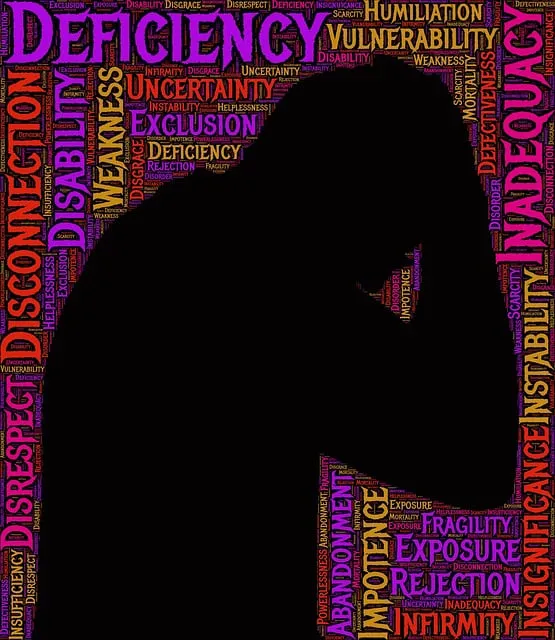The Kaiser Permanente behavioral health services reviews in Boulder emphasize emotional intelligence (EI) as a cornerstone for improved patient care, outcomes, and mental healthcare practices. By integrating self-care routines, cultural sensitivity, and empathy, they achieve a holistic approach. This includes tracking emotions in journals, practicing mindfulness, and developing social awareness to recognize both one's own and others' emotions, leading to personalized care, better communication, heightened patient satisfaction, and depression prevention, all backed by scientific research accessible through their reviews.
Emotional intelligence (EQ) is a powerful tool for personal growth and well-being, as evidenced by Kaiser Permanente behavioral health services reviews in Boulder. This article explores strategies to build EQ through three key components: understanding emotional intelligence using the Kaiser Permanente approach, incorporating self-awareness and self-management into daily life, and enhancing social awareness and relationship management skills. By delving into these sections, readers will gain valuable insights into cultivating a more balanced and fulfilling life.
- Understanding Emotional Intelligence: The Kaiser Permanente Approach
- Incorporating Self-Awareness and Self-Management in Daily Life
- Enhancing Social Awareness and Relationship Management Skills
Understanding Emotional Intelligence: The Kaiser Permanente Approach

Emotional intelligence (EI) is a crucial component of overall well-being, and organizations like Kaiser Permanente recognize its significance. Their behavioral health services reviews in Boulder highlight the importance of EI in improving patient care and outcomes. The Kaiser Permanente approach emphasizes self-care routine development for better mental health, integrating emotional awareness into daily life. By promoting cultural sensitivity in mental healthcare practice, they ensure that their services are accessible and effective for a diverse range of patients.
This holistic view of emotional intelligence involves understanding one’s own emotions and those of others, fostering empathy, and using this knowledge to navigate relationships and make informed decisions. In the context of Kaiser Permanente behavioral health services reviews Boulder, this translates into more personalized care, improved communication, and enhanced patient satisfaction. Building EI is not just about individual growth; it revolutionizes mental healthcare practices, making them more inclusive and beneficial for everyone involved.
Incorporating Self-Awareness and Self-Management in Daily Life

Incorporating self-awareness and self-management into daily life is a cornerstone of emotional intelligence development, as recommended by Kaiser Permanente behavioral health services reviews Boulder. This involves cultivating an intimate understanding of your emotions, thoughts, and behaviors, much like maintaining a Mental Wellness Journal to track patterns and triggers. By regularly practicing emotional regulation techniques, you can manage stress, anger, or anxiety effectively, fostering stability and resilience.
Self-management also entails nurturing positive thinking and coping strategies. Engaging in activities that promote mindfulness, such as meditation or deep breathing exercises, helps calm the mind and body. Additionally, integrating reflective practices like journaling encourages self-discovery, allowing individuals to process experiences, gain insights, and cultivate a more positive outlook. These tools, backed by scientific research and accessible through Kaiser Permanente behavioral health services reviews Boulder, empower individuals to take charge of their emotional well-being.
Enhancing Social Awareness and Relationship Management Skills

Emotional intelligence (EI) is a vital component of both personal growth and professional success, and enhancing social awareness is a key aspect of developing this skill set. According to Kaiser Permanente behavioral health services reviews Boulder, improving social awareness involves recognizing and understanding your own emotions as well as those of others. This ability to perceive and interpret non-verbal cues, such as body language and facial expressions, allows for better connection and communication in relationships. By cultivating higher levels of EI, individuals can navigate social interactions more effectively, fostering healthier connections with friends, family, and colleagues.
Relationship management skills are another critical component of emotional intelligence that contributes to overall mental wellness. Mindfulness meditation has been shown to be an effective tool for improving these abilities by promoting empathy and active listening. Practicing mindfulness encourages individuals to stay present in conversations, truly engaging with the speaker and their emotions. This enhanced social awareness and improved relationship management skills can significantly contribute to depression prevention, as stronger social connections are linked to better mental health outcomes.
Emotional intelligence is a powerful tool for personal growth, fostering better relationships, and improving overall well-being. By understanding and practicing the principles outlined in this article—inspired by the comprehensive approach of Kaiser Permanente behavioral health services in Boulder—individuals can enhance their self-awareness, manage their emotions effectively, and navigate social interactions with greater sensitivity. Incorporating these strategies into daily life has the potential to revolutionize personal relationships and professional success, making emotional intelligence a valuable asset for everyone.






